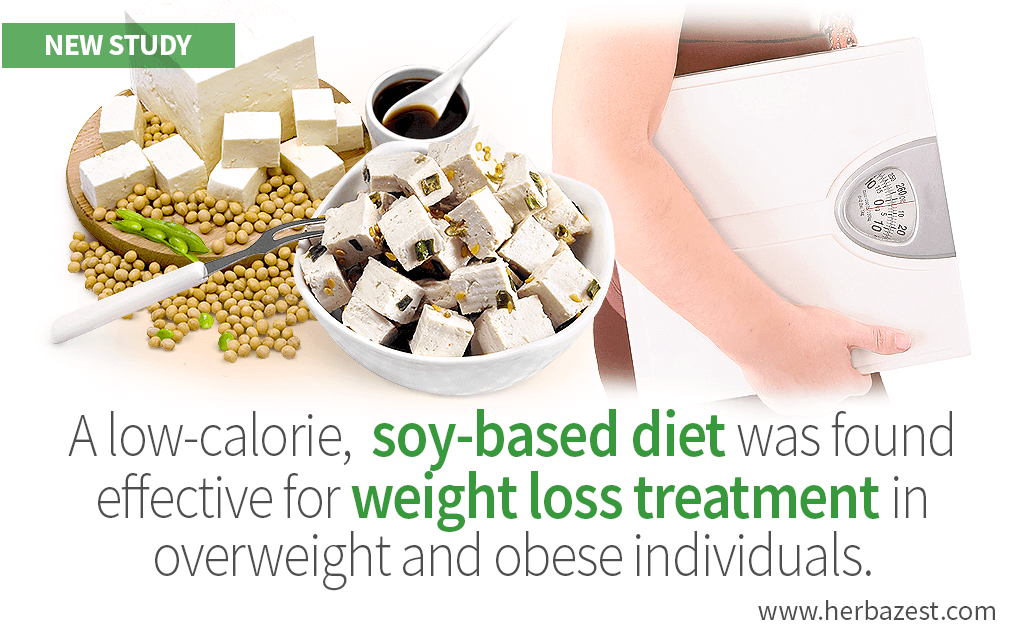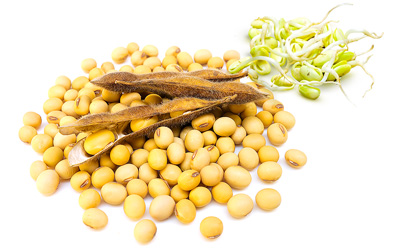With worldwide obesity doubling over the past three decades, there is an urgent need for safe and effective treatments. Unfortunately, available pharmacological options are not always effective or well tolerated.
Previous animal studies have shown that soy may reduce body fat, while human trials showed its beneficial effects on serum lipids levels.1,2 These findings necessitate human trials to explore using soy for obesity treatment.
This study was conducted to determine whether a soy-based diet can be used to treat weight loss.
The Study
Researchers from the Obesity Research Center at St. Luke's Roosevelt Hospital in New York conducted this randomized clinical trial in partnership with specialists in clinical nutrition and obesity from the University of Alabama at Birmingham (Birmingham, Alabama) and Johns Hopkins University School of Medicine (Baltimore, Maryland). Their findings can be found in the European Journal of Clinical Nutrition.
Recruits in this 12-week trial were 100 overweight and obese volunteers between the ages of 35 and 65 and with a body mass index (BMI) ranging from 28 to 41 kg/m2. They were randomly assigned to two groups with the following diet instructions:
The control group was instructed to follow a 1200 kcal exchange system diet. They also received one counseling session and an educational pamphlet on weight loss practices.
The experimental group was instructed to follow a diet consisting of five Scan Diet Shakes (made from soy protein, soy fiber, and soy phospholipids, among other ingredients); four exchanges of fruit; four exchanges of vegetables; and one fat exchange. They also received a counseling session, the weight loss pamphlet, and the Nutricia Scan Diet Meal Plan booklet.
Participants were evaluated every four weeks, from the beginning until the end of the study. Evaluations consisted of a compliance check; blood samples; anthropometric measures (weight, height, waist circumference); blood pressure; and psychological status.
The Results
Out of the 100 recruited participants, 74 successfully completed the study.
Results showed greater weight loss in the experimental group (-3.4 kg at week 4, -5.7 kg at week 8, and -7.1 kg at week 12) at each of the 4-week evaluations in comparison to the control group (-2.1 kg at week 4, -2.5 kg at week 8, and -2.9 kg at week 12).
In terms of fat mass, participants in the experimental group had a substantially greater loss of fat mass at week 8 and 12 relative to the control group.
Weight circumference reductions were also noted in the experimental group after the 8th and 12th week.
Additionally, significant reductions in total LDL cholesterol were observed in the experimental group, even after accounting for weight loss.
The soy-based meal replacement formula was well tolerated, and no serious side effects were reported.
What Does this Mean?
Results of this study show that a low-calorie, soy-based diet can promote weight loss as part of a safe, effective, and natural obesity treatment.
Researchers also suggest that reductions in total and LDL cholesterol levels indicate that various compounds in soy may contribute to lowering their levels independent of weight loss. Long-term studies are recommended to further understand these benefits.
Other herbs with weight loss benefits include raspberry, green tea, and cinnamon.
Sources
- European Journal of Clinical Nutrition, A novel soy-based meal replacement formula for weight loss among obese individuals: a randomized controlled clinical trial, 2003
Footnotes:
- The Journal of Nutrition. (1998). Soy Protein, Isoflavones an Cardiovascular Disease Risk. Retrieved September 23, 2020 from https://academic.oup.com/jn/article/128/10/1589/4723162
- Nutrition. (2000). Soy protein isolate and its hydrolysate reduce body fat of dietary obese rats and genetically obese mice (yellow KK). Retrieved September 23, 2020 from https://pubmed.ncbi.nlm.nih.gov/10793303/





